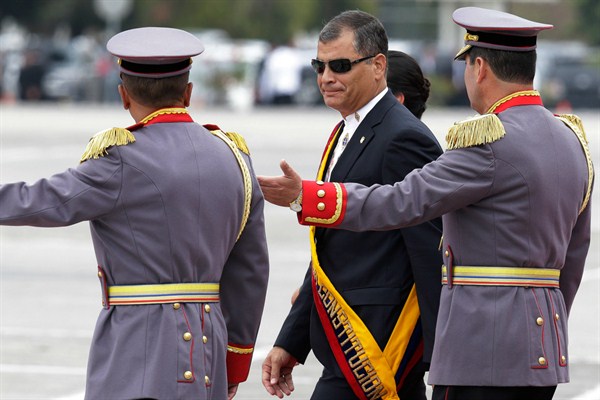On Feb. 5, Ecuador’s president, Rafael Correa, removed the entire high command of the country’s armed forces. The move followed a public dispute about the amount paid by the Ministry of the Environment in 2010 to acquire a military-owned plot of land in the city of Guayaquil, which was incorporated into a natural reserve. After an investigation, the government claimed that it had overpaid by $41 million and would therefore reduce its obligations to the Social Security Institute of the Armed Forces (ISSFA), the original owner of the land. The military publicly rejected the accusations and resisted the reimbursement of the funds. Faced with a direct challenge to his authority as commander-in-chief, Correa immediately announced the generals’ sacking.
The real causes of the tension between Correa and the armed forces, however, run deeper. Current differences between the government and the barracks emerged out of Correa’s gradual curtailment of the military’s traditional economic power and political influence. Yet while Correa has reduced the autonomy of the armed forces as part of his personalized rule and increasingly undemocratic concentration of power, stronger civilian control over the military could still help strengthen Ecuador’s democracy.
The military is one of the most powerful economic actors in Ecuador. During the 1970s dictatorship, when a junta ran the country, the armed forces established strategic firms in metallurgy, oil production and transportation through the creation of military-owned corporations and associations with private interests. Soon, however, the military became involved in sectors as diverse as mining, automobiles, telecommunications, fisheries and even hotels. The military, for example, once owned the Quito Marriott.

